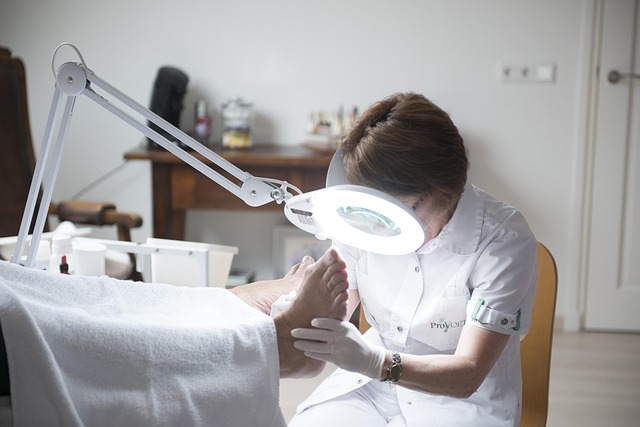Co-occurring disorders, where mental health issues and substance use disorders coexist, require integrated treatment addressing both conditions simultaneously. Free online 12-step meetings have emerged as a revolutionary support system, offering anonymity, community, and shared experiences in virtual spaces. Combining traditional 12-step frameworks with holistic wellness practices, evidence-based medications, and tailored therapies, these programs provide comprehensive solutions for individuals recovering from co-occurring disorders, making treatment more accessible and effective.
“Co-occurring disorders, where mental health conditions and addiction mutually reinforce each other, pose a complex challenge. This article delves into the intricate relationship between mental well-being and addictive behaviors, highlighting the importance of treating both simultaneously. We explore ‘Understanding Co-Occurring Disorders’ and the growing role of online 12-step meetings as accessible support. Furthermore, it provides insights on effective strategies to address the underlying conditions that often lead to addiction, offering a comprehensive guide for those seeking recovery.”
- Understanding Co-Occurring Disorders: When Mental Health and Addiction Collide
- The Role of Free Online 12-Step Meetings in Co-Occurring Disorder Treatment
- Effective Strategies for Addressing Underlying Conditions Leading to Addiction
Understanding Co-Occurring Disorders: When Mental Health and Addiction Collide

Co-occurring disorders, also known as dual diagnoses, describe a complex scenario where an individual struggles with both mental health issues and addiction simultaneously. This often overlooked aspect of healthcare presents unique challenges in treatment. When mental health conditions such as depression, anxiety, or bipolar disorder coexist with substance use disorders, addressing one without the other is inadequate. A comprehensive understanding of these intertwined problems is essential to effective recovery.
In many cases, addiction serves as a coping mechanism for undiagnosed or untreated mental health issues. For instance, someone dealing with chronic stress and anxiety might turn to drugs or alcohol as a means of numbing their emotions and finding temporary relief. This self-medication approach, while offering short-term respite, perpetuates a vicious cycle where addiction exacerbates the very mental health conditions it attempts to alleviate. Fortunately, specialized treatment programs are available, including online 12-step meetings, holistic wellness initiatives focusing on nutrition, exercise, and stress management, as well as support groups for loved ones and coaching in healthy relationship dynamics during early sobriety.
The Role of Free Online 12-Step Meetings in Co-Occurring Disorder Treatment

Free online 12-step meetings have emerged as a powerful tool in the realm of co-occurring disorder treatment, providing a supportive space for individuals battling both mental health conditions and addiction. These virtual gatherings mimic the traditional in-person meetings, offering a sense of community and anonymity that can be particularly appealing to those seeking recovery. Participants engage in discussions, share experiences, and offer mutual support, fostering an environment conducive to healing. Many online platforms also incorporate personalized mindfulness plans, nutrition planning services for optimal health recovery, and healthy sleep habits coaching, ensuring a holistic approach to treatment.
By combining the 12-step framework with evidence-based therapeutic practices, free online meetings cater to diverse needs within the co-occurring disorder spectrum. They serve as a launching pad for individuals to navigate their personal journeys towards sobriety, providing coping strategies and accountability mechanisms that extend beyond the meeting room. This accessibility opens doors for folks who might otherwise face barriers to accessing traditional treatment options, making online 12-step meetings a game-changer in the digital era of mental health care.
Effective Strategies for Addressing Underlying Conditions Leading to Addiction

Addressing underlying mental health conditions is a pivotal aspect of effective co-occurring disorder treatment. Strategizing interventions that tackle these root issues alongside addiction can significantly enhance recovery outcomes. Free 12-step meetings online provide peer support and guidance, fostering a sense of community for those navigating recovery. These meetings offer an accessible platform to share experiences, gain insights, and stay accountable in the journey towards sobriety.
Integrating holistic wellness programs that encompass yoga, meditation, and nutrition can facilitate deep healing on both physical and mental levels. Such programs promote mindfulness, stress reduction, and healthier lifestyle choices, which are crucial components of managing co-occurring disorders. Additionally, evidence-based medications play a vital role in withdrawal management by mitigating cravings and alleviating symptoms associated with detox. Co-occurring disorder treatment options should be tailored to individual needs, combining therapeutic interventions with support services for comprehensive healing.
Co-occurring disorder treatment, by addressing underlying mental health conditions, offers a holistic path to recovery. Integrating evidence-based strategies alongside free online 12-step meetings provides individuals with the necessary tools to overcome addiction and its root causes. By embracing these comprehensive approaches, we can foster sustainable healing and transform lives impacted by co-occurring disorders.






